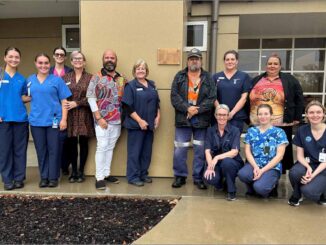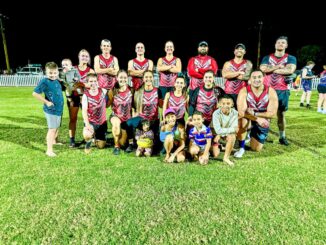![]()
It’s been talked about for some time—a Biohub that would make good use of Invasive Native Scrub (INS) in the Cobar district—and now it’s in the final planning stages.
An Orana Biohub processing facility was first mooted back in 2014 and gained the support of Regional Development Australia (RDA) Orana, Western Regeneration, Dubbo City and Cobar Shire councils, the NSW Government Department of Environment and Heritage and other local stakeholders.
It was proposed the facility would process INS vegetation sourced from surrounding agricultural land and utilise all aspects of the input material for processing into goods for sale and export.
These goods included high quality timber products, essential oils, reductants for use in metal manufacture and biochar.
An Environmental Scoping Report for a Cobar Biohub, which would be located 5.8km east of Cobar, was prepared by Renewed Carbon
P/L in December 2018 and presented to Cobar Shire Council.
The project stalled for a number of years (due to funding) but now has an estimated capital investment of approximately $45 million. (This investment value is subject to further project development and design.)
Project planning and approvals are underway with construction of the Biohub expected to commence in 2025.
It’s estimated it will create 50 jobs.
Cobar Biohub development manager Peter van Herk and the team will be in town next week to make a presentation about the upcoming development and start discussions with landholders suffering INS infestations.
Mr van Herk said there will also be a presentation by Decarbonisation Solutions Australia on new and upcoming crops and markets that are creating greater farm incomes through carbon farming and biomass for sustainable aircraft fuels.
“Anyone with INS on their property knows how INS has degraded agricultural productivity, land values and biodiversity. It has been a problem too costly for most landholders to tackle systematically,” Mr van Herk said.
“The Biohub is changing the economics by creating value out of INS that is normally burnt in the paddock as waste, instead selectively sorting the INS to value add as much as possible through charcoals, specialty timbers and extractives.”
Mr van Herk praised one local landholder who attended a public meeting presented by Renewed Carbon in Cobar in August 2016 where the Biohub concept was first discussed and made the comment: ‘What you are describing is an abattoir for vegetation.’
“That description has been so useful and so often repeated as the Biohub project has emerged in its current form.”
Mr van Herk said next week’s meeting will give an update on their mapping, planning, feasibility and predevelopment processes, recent activity and a field processing trial.
“Everyone is welcome to bring questions along as the Biohub intends to be very much as part of the Cobar community, seeking to employ and train as many locals as possible and those that do have to come to town to work will live here. No FIFO’s for the Biohub!”


